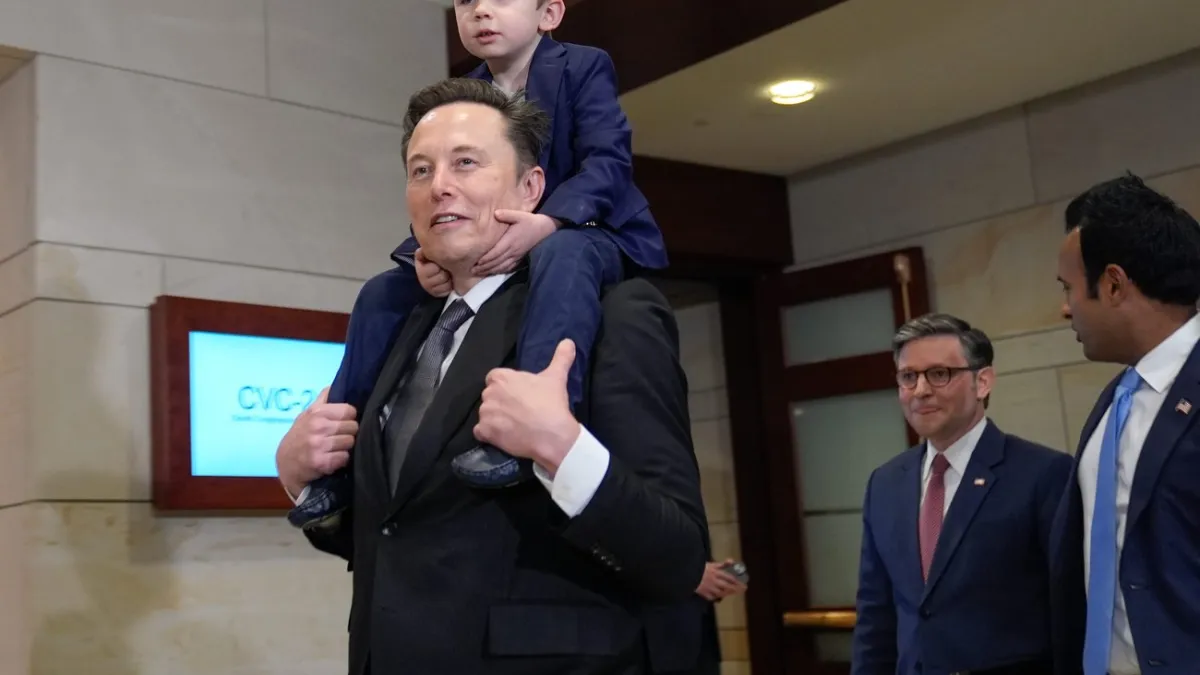
Musk Not in Charge of DOGE, White House Says
Before taking office in January, President Donald Trump announced the creation of a Department of Government Efficiency, known as DOGE, to be run by Elon Musk and Vivek Ramaswamy. Trump said these “two wonderful Americans” would have the goal of dismantling and restructuring the federal bureaucracy, slashing regulations and cutting wasteful spending. The project would entail major structural changes never seen before in Washington, with effects that could make “the Manhattan Project of our time.”
Ramaswamy dropped out of the effort by the time the inauguration rolled around, leaving Musk in charge of what has turned out to be an all-out assault on multiple federal agencies. Musk’s status within the federal government, however, has never been entirely clear, and according to a legal filing this weekend, it turns out Musk is not formally running DOGE after all.
In response to a lawsuit seeking to limit DOGE’s activities, Joshua Fisher, the director of the White House’s Office of Administration, told a court that Musk is not in charge of DOGE and has no authority to make decisions within the federal government.
Fisher said Musk is a special government employee, or SGE, who serves as a senior adviser to the president. “In his role as a Senior Advisor to the President, Mr. Musk has no greater authority than other senior White House advisors. Like other senior White House advisors, Mr. Musk has no actual or formal authority to make government decisions himself. Mr. Musk can only advise the President and communicate the President’s directives.”
Fisher also addressed the bureaucratic structure of DOGE – officially the U.S. DOGE Service, a new name for the old U.S. Digital Service – which he said is “a component of the Executive Office of the President.” Formally, Musk is a temporary employee of the White House, which is separate from both the U.S. DOGE Service and the U.S. DOGE Service Temporary Organization within USDS that is in charge of current DOGE activities. “Mr. Musk is not the U.S. DOGE Service Administrator,” Fisher said. He did not say who is running the effort.
Asked about Musk’s official role, Trump said he had no concerns about it. “Elon is, to me, a patriot,” he told reporters Monday. “So, you know, you could call him an employee, you could call him a consultant, you could call him whatever you want.”
Trump also said that he has asked Musk who the people on the DOGE team are. “He said they’re super brilliant computer people and they love the country,” Trump said. “It’s simple.”
The bottom line: The announcement does not mean that Musk isn’t running DOGE on an informal basis, as many statements by Trump and Musk suggest, but it does indicate that the Trump administration is seeking to formally distance Musk from the project, possibly to avoid many of the legal issues that could arise from his involvement. At a hearing Monday, a Justice Department lawyer said all federal layoffs have been executed by internal staff. At least one outstanding lawsuit continues to probe the issue, and we may soon learn whether Musk’s reign as the informal DOGE chief presents any serious issues for the Trump administration’s first major effort to transform the federal government.